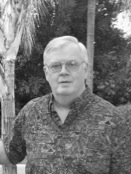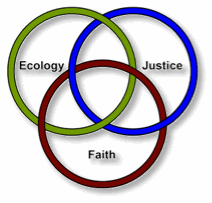BRIEF PROFILE of WEBSITE EDITOR

Family: Born in Kyoto, Japan, of missionary parents, he lived in Indianapolis during World War II, and became a naturalized citizen in 1947. DTH resided in California through the mid-sixties, in Philadelphia through the 1980s, and in Princeton, NJ, from 1992-2004. While in Princeton, Dieter’s spouse Karen McLean Hessel, M. Div. was Program Director, Justice for Women, National Council of Churches of Christ in the U.S.A., NYC. They have 3 grown children and 2 grandchildren.
Education: In the mid-1960s Dieter was a Presbyterian Graduate Fellow while completing Ph.D. studies in Christian social ethics at the Graduate Theological Union and San Francisco Theological Seminary. Earlier, he received a B.A. from the University of Redlands (cum laude) and a B.D. from San Francisco Theological Seminary.
Professional Work: From 1965-1990, he served on the national executive staff of the United Presbyterian Church coordinator of adult social education, and then in the merged Presbyterian Church (USA) as director of social witness policy. His basic work was to develop and edit social education resources, to initiate study papers and policy statements on a wide range of domestic and international issues, including civil rights, economic justice and the Vietnam War, and to conduct leadership development programs for social ministry oriented to justice, peace, and integrity of creation.
He left his denominational executive staff position in 1991 to become a visiting professor of ethics at McCormick Theological Seminary, Chicago, and the following year, became a resident member of the Center of Theological Inquiry, Princeton, NJ, where he had a special retooling opportunity, enabling him to concentrate on eco-theology and ethics.
Since 1993, DTH has directed the ecumenical Program on Ecology, Justice, & Faith (PEJF), designed to provide professional development for scholars and teachers of theology and religion across North America. The PEJF was supported for a decade by grants from the MacArthur Foundation and other sources. Meanwhile, he also co-directed TEMEC–“Theological Education to Meet the Environmental Challenge,” a joint project with the Center for Respect of Life and Environment, Washington, DC to foster scholarship and pedagogy that integrates theory and practice for sustainable community.
His posted essay, “Reforming Theological Education,” describes this work.
Eco-Justice-Oriented Engagement: DTH has participated in, and helped to lead, the eco-justice movement. In 1970, he drafted the Presbyterian General Assembly statement responding to the first Earth Day. In the latter part of that decade, he focused particularly on food, hunger, and energy issues, chairing the Inter-religious Task Force on U.S. Food Policy in Washington, DC, and guiding a leadership development project of the National Council of Churches named WHEAT (World Hunger Education and Action Together). He also participated in the major NCC study of “The Ethical Implications of Energy Production and Use.” All of these collaborative involvements resulted in books he edited.
In the 1980’s, DTH collaborated with United Church of Canada staff to educate the churches about the threats of acid rain and ozone depletion. In 1985, he became founding co-chair of the Eco-Justice Working Group, National Council of Churches. The organizing staff for this endeavor was Chris Cowap of the NCC. From 1987-90, he directed the social policy unit that produced Restoring Creation for Ecology & Justice a report adopted by the 1990 General Assembly of the Presbyterian Church (U.S.A.).
In the 1990s, his initiatives through PEJF and TEMEC designed to provide professional development to a growing network of theological educators, teachers of religion, and church leaders resulted in ecumenical development of eco-justice theology and ethics, as indicated in the first three edited publications listed below.
Publications:
Editor of several anthologies, growing out of DTH’s eco-justice engagement, including:
Earth Habitat: Eco-Injustice and the Church’s Response, co-edited with Larry Rasmussen (Fortress Press, 2001)
Christianity and Ecology: Seeking the Well-being of Earth and Humans, co-edited w/ Rosemary Ruether (Harvard U. Center for the Study of World Religions, 2000)
Theology for Earth Community: A Field Guide (Orbis Books, 1996)
The Church’s Public Role: Retrospect and Prospect (Eerdmans Publ. Co., 1993)
After Nature’s Revolt: Eco-Justice and Theology (Fortress Press, 1992)
Theological Education for Social Ministry (Pilgrim Press, 1988)
For Creation’s Sake: Preaching, Ecology & Justice (Geneva Press, 1985)
Social Themes of the Christian Year: Lectionary Commentary (Geneva Press, 1983)
The Agricultural Mission of Churches and Land-Grant Universities (Iowa State University Press, 1980)
Energy Ethics: A Christian Response (Friendship Press, 1979)
Author of books on: Social Ministry (W/JK Press, rev. ed., 1992), A Social Action Primer (1972); and Reconciliation and Conflict (1969)
During the last 2 decades, DTH has also served as
Board Member of the Center for Respect of Life and Environment.
Board Member of Environmental Action.
Advisor to GreenFaith, a New Jersey inter-religious organization for clergy and laity.
Area Specialist on Christian Ethics for Forum on Religion and Ecology, Yale Univ.
Contributing Editor to EarthLetter, a mini-journal of Earth Ministry, Seattle, WA.
And organizer of two international gatherings exploring the Earth Charter.
An Adjunct Professor of Ethics at Bangor Theological Seminary
(and earlier at two other theological schools)
